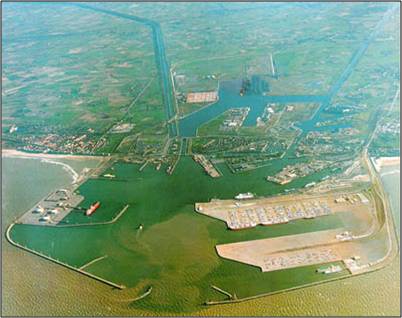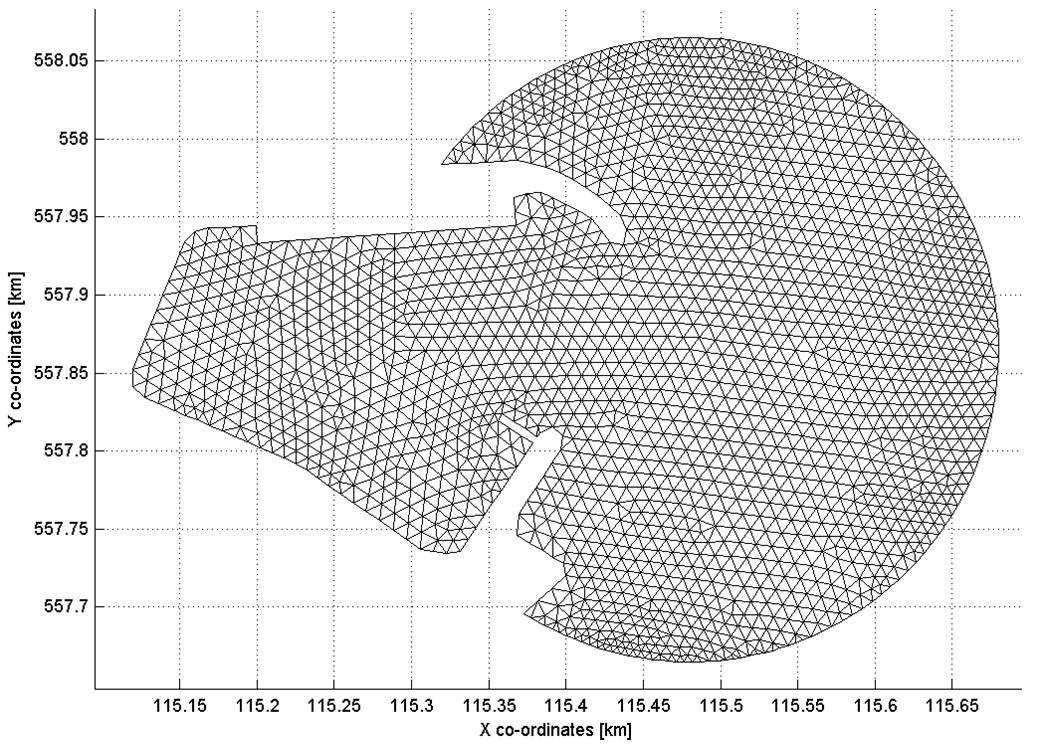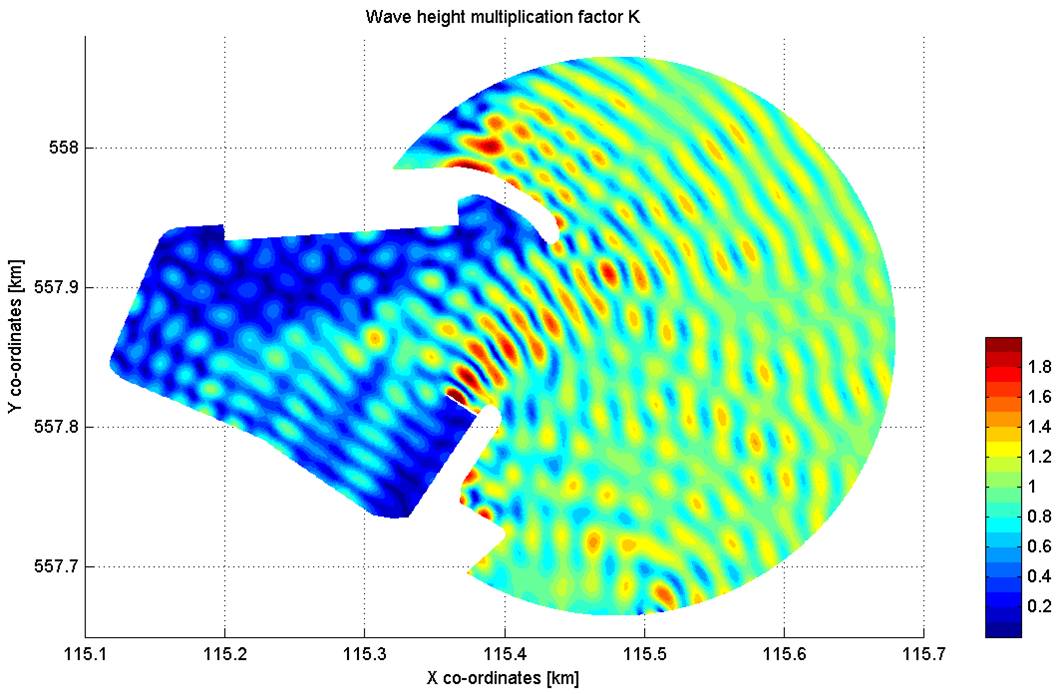Acceleration of the 2D Helmholtz model HARES
Gemma van de Sande
Supervisor: Martin van Gijzen
Site of the project:
Svasek Hydraulics
Schiehaven 13G
3024 EC Rotterdam
start of the project: September 2011
In December 2011 the
Interim Thesis
and a
presentation has been given.
The Master project has been finished in May 2012
by the completion of the
Masters Thesis
and a final
presentation
has been given.
For working address etc. we refer to our
alumnipage.
Summary of the master project:
Svasek Hydraulics is a civil technical engineering company in
Rotterdam, specialized to give advice and consultancy
in the domain of coastal and river developments and the design of harbors.
Svasek has much expertise in computational fluid dynamics (CFD):
most of given advice is based on simulations of flow of water (currents/waves)
and transport of species and sediment in water.

Propagation of waves in the harbor of Zeebrugge, Flanders
Most numerical simulations done by Svasek are based on the
Finite Element Method.
A popular 'home-made' softwarepackage is HARES
(HArbor RESonance), which is used to simulate the propagation of waves in
coastal regions.
In order to solve linear systems Ax = b in HARES, the popular Krylov subspace method Bi-CGSTAB is used combined with an ILU preconditioning.
Using this solution method it appears that the ILU preconditioning is not
well suited for this type of methods. Recently, a special preconditioner
is developed to solve Helmholtz problems, which is denoted by Shifted Laplace preconditioning. In many applications this combination leads to a fast
and robust method.
During the master thesis project an investigation shall be made to see
if the Shifted Laplace
preconditioning is also a good solver for the Helmholtz problems
generated by HARES.


Example of an unstructured Finite Element grid for HARES
and the resulting solution

Contact information:
Kees
Vuik

Back to the
home page
or the
Master students page of Kees Vuik



![]()
![]()